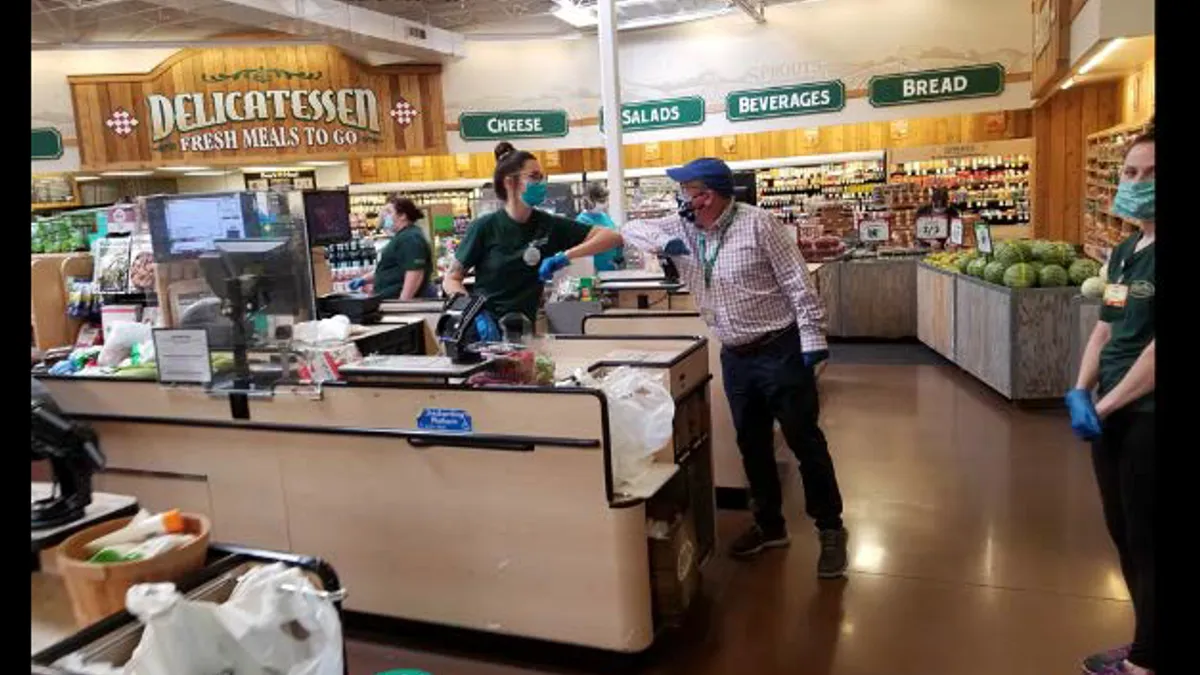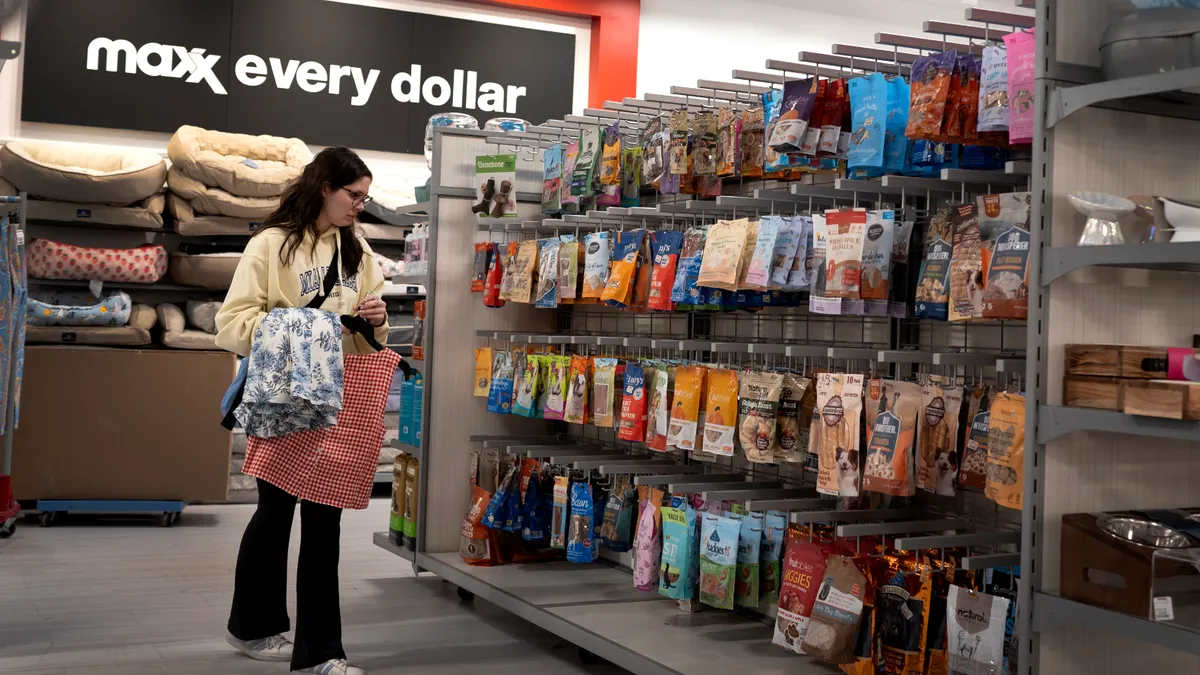Dive Brief:
-
In a sign of how severely the pandemic has undermined the economy, the U.S. added just 245,000 jobs in November, bringing the unemployment rate down to 6.7%, the Labor Department said Friday.
-
The economy lost 9.8 million jobs since February, according to a press release from the department's Bureau of Labor Statistics. The labor force participation rate is down to 61.5%, 1.9 percentage points below its February level.
-
The retail employment situation reflects the pandemic's damage to the sector: In November, retail lost 35,000 jobs, "reflecting less seasonal hiring in several retail industries," according to the government's report.
Dive Insight:
The jobs added into the economy in November simply aren't enough to dig the U.S. out from under the steady losses of the last several months, and that has dire implications for retailers' holiday season.
Moreover, while the unemployment rate inched down, that's only because the job pool also shrank, said Robert Frick, corporate economist at Navy Federal Credit Union.
"There's no way to sugarcoat today's weak jobs report," Frick said in emailed comments, noting that almost 4 million people in the U.S. have been out of work for more than half the year.
There were already signs that consumers were wary of spending this season. GlobalData in October discovered significant bargain-hunting in the U.S. due to pandemic-induced job and income losses. And consulting firm Highland found that 63% of U.S. consumers have cut spending during the pandemic, indicating that they're cautious about it, have suffered reduced income or lost jobs or that they're spending less because they are stuck at home.
The lame-duck Congress is reportedly edging closer to a possible deal on another pandemic relief package that could ease some of that caution, as the first pandemic stimulus did earlier in the year. That and the real possibility of a vaccine provides hope for a fairly quick recovery, according to Wells Fargo Senior Economist Sarah House.
"Even with the best seven-month run of job gains on record, employment losses are steeper than at the depth of the Great Recession," House said in emailed comments. "That said, there is still reason to believe that the labor market will snap back more quickly this cycle. Vaccines are in sight and the odds of additional fiscal support are rising."
For now, however, the reticence to spend for the holidays will likely influence even those households that still have jobs and savings.
"All indications point to a drop in spending this holiday season, and the jobs report certainly adds to that forecast," Frick said by email. "I think the hopes that middle- and upper-income people are not spending on services as much, so they are more likely to spend on goods, isn't going to result in an increase. Given the rise of COVID-19, even those with jobs and money are more likely to be defensive with their spending. However, we shouldn't expect spending will be far below last year‘s levels."













